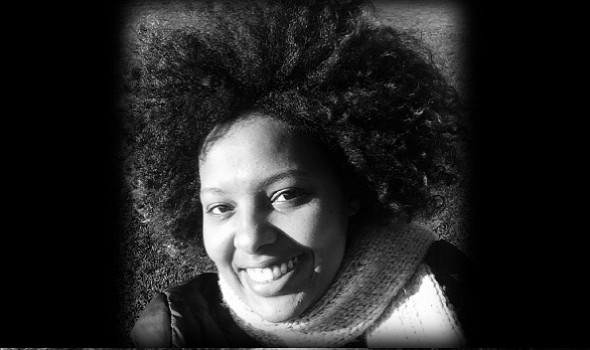My Black History Month
My Black History Month

For Black History Month, Migrant Voice are running a series of Black migrants in the UK talking about the people, objects and places in their history?—?whether personal or global?—?that have inspired them. Today Areej, a writer, tells us about reclaiming her natural hair.
I think you are a very good candidate”, said the black woman from the recruitment agency with the human hair extension.
“Thank you.”
“Would you be able to change your hairstyle? Like, you know, “westernise” it?”
My hair is coarse and thick. It grows in tiny crinkles with spiral ends. The fact that it grows out, not down, shows how rebellious it is. It challenges gravity and refuses to be tamed. It resists being smoothed into a neat bun or pony tail. My hair is dense and I love it.
I did not know that I had such hair before. When I was younger all my peers used to straighten their hair despite the fact that it would return to its natural state after a couple of hours. To tackle this problem, we used relaxers?—?chemicals that can make coarse hair smooth and straight for couple of months. The media has done a very good job promoting “beauty standards” all over the world. It is more in Africa than in Europe that you are encouraged to relax your hair?—?the longer and straighter your hair is, the more beautiful you are. That’s why when I sent my mum a photo with my new hairstyle she said, “hey, are there no combs in London?!”
One would think that every person in a free country has the right to wear their hair as they desire so long as it does not compromise national security or public safety; (I’m not carrying a gun under my afro!) But no?—?natural African hair is still considered “unprofessional” and “untidy” by some employers. The scenario I shared above happened to me earlier this year, and it happens to many black women?—?be it that vulgarly direct, or more indirect. Employees have been asked not to wear their natural African hair, or to wear a weave to work, and one woman interviewed by the BBC said her employer asked when her hair will go back to “normal” while she had cornrows!
In the 21st Century, your competence at the job should matter more than the way you wear your hair. According to Kehinde Adeogun, an employment lawyer; “Unless an employer can show that there is a justifiable reason for the ‘wear a weave’ to work dress code, the requirement for employees to comply could be held to be indirect race discrimination under the Equality Act 2010.”
I am not proud of my hair, nor embarrassed about it for this matter. I am just happy with my hair, and by wearing it naturally I send a message the message that I no longer agree with the exclusive beauty standards emphasized by our media. I refuse to put myself in the relaxer prison.


